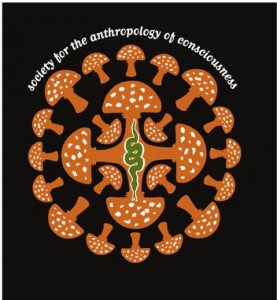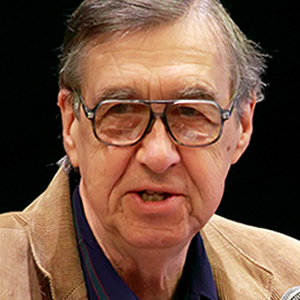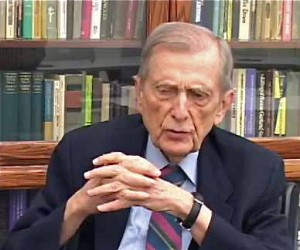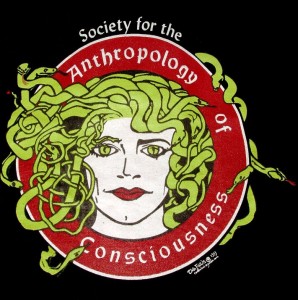Cultural anthropologists like to divide up their field by subject matter, and talk about, say, the anthropology of food, or the anthropology of pregnancy, or the anthropology of numbers.
If you saw a book about the anthropology of pregnancy, for example, you would expect to see, on the one hand, ethnographic accounts of the way pregnancy is viewed and experienced in different cultures — the significance, symbolism, values, meanings, myths, stories, games, ceremonies, rules, restrictions, and prohibitions about pregnancy in those individual cultures; and, on the other hand, theoretical analyses of pregnancy across cultures and as a universal human experience. Such expectations would probably turn out to be correct.
 |
And then there is the anthropology of consciousness. There must be such a thing, since there is a Society for the Anthropology of Consciousness, which is affiliated with the American Anthropological Association, publishes a journal named Anthropology of Consciousness, and has an annual meeting every spring. In fact, I am a member of the society, I have had two articles published in its journal, and I have attended its often enjoyable meetings. None of those facts has stopped me from being puzzled.
What in the world is the anthropology of consciousness? The phrase is unfortunately infelicitous. One reason for the infelicity is that, while we have a pretty good idea what we mean when we use terms such as food, or pregnancy, or even numbers, there is no such consensus about the term consciousness. Another reason is that the term consciousness is tremendously broad. It is hard to think of any feature of human culture — including food, pregnancy, and numbers — that does not in some way involve consciousness, however we may define it.
Underlying these problems is the fact that the term consciousness is here a euphemism, or at least an abbreviation. At its core, the anthropology of consciousness is concerned not with consciousness in its broader sense, but rather with what have been called, since at least 1966, altered states of consciousness, a term brought into the cultural mainstream by Charles Tart in his seminal anthology Altered States of Consciousness: A Book of Readings, published in 1969.
 |
| Logo for the Society for the Anthropology of Consciousness, with Amanita muscaria |
Now, again, the term altered state of consciousness is not felicitous. Even putting aside the vexed question of whether there is in fact some phenomenon that it makes sense to call consciousness, and, if there is, what it is, and whether, whatever it is, it can have such things as states, we have to deal with the question of which of those states is altered, and from what. The problem is usually disposed of by offering examples. Altered states of consciousness, we are told, include such experiences as meditation, hallucinations, lucid dreams, shamanic visions, out-of-body experiences, delusions, false awakenings, apparitions, depersonalization, derealization, delirium, and religious ecstasy.
This is pretty much what the Society for the Anthropology of Consciousness has done. In a rather confusing list on its website, the SAC enumerates as among its interests such phenomena as dreams, possession, trance, dissociation, mediumistic communication, divination, mystical experiences, psychic phenomena, reincarnation, and near-death experiences. But lists of examples do not make a definition.
What we have in such lists, it seems, is a collocation of private human experiences that are extraordinary, anomalous, numinous, compelling, disruptive, culturally salient, and — like pregnancy — with significance, symbolism, values, meanings, myths, stories, games, ceremonies, rules, restrictions, and prohibitions that differ from culture to culture, yet with cross-cultural and potentially universal human importance.
It is probably fair to say that at least some such extraordinary, anomalous, numinous, compelling, disruptive, and culturally salient private experiences are found in every human culture, although the attention given to particular experiences may vary from culture to culture. Within a culture, such experiences may be awaited passively or actively sought; carefully avoided or deliberately cultivated; considered valuable or pathological; and rewarded or punished.
 |
| Charles Tart |
Such an experience may also function within a culture in various ways — as recreational, for example, or initiatory, or therapeutic, or prophetic — and an experience valued in one culture may be stigmatized in another. In other words, these extraordinary experiences — just like food or pregnancy or numbers — are both humanly universal and embodied in specific cultural contexts, and are thus exactly the sort of thing that anthropology is designed to study.
And that is why the euphemism — precisely because, in our culture, many of these experiences are ignored, marginalized, pathologized, and punished. As is so often the case, then, cultural anthropology gives us the opportunity to go beyond our own cultural preconceptions and, by seeing how these experiences are treated and understood in other cultures, open our eyes to to the profoundly human.
 |
| Stanley Krippner |
I think that there are anthropologists of consciousness who would dispute this characterization as being too narrow. Stanley Krippner — certainly one of the giants of the field — has written that the anthropology of consciousness “allows me to investigate awareness, attention, memory, mood, feeling, intention, volition, or any of the other proposed components of an overall mosaic.” Indeed, the current issue of Anthropology of Consciousness is dedicated to articles on the theme of wakefulness, sleepiness, and alertness — surely ordinary states in just such a sense.
Yet the anthropological interest in these states arises precisely where they become extraordinary, where they become an extravagance of the ordinary state. Thus this volume does not deal with ordinary sleepiness but rather with narcolepsy; it explores not ordinary wakefulness but rather hypervigilance in methamphetamine users, survivors of combat, and people with unusual sleep disorders; it investigates alertness in experimental subjects who voluntarily go without sleep for hundreds of hours.
 |
Rebecca Lester and Peter Benson are the new editors of Anthropology of Consciousness. In writing about their goals for the journal, published in the December 2012 issue of Anthropology News, the tension between the all-encompassing scope of consciousness and the focus on extraordinary experience becomes manifest. On the one hand, they write that they “hold a broad conception of consciousness and seek work that will enhance the journal’s transdisciplinary and cross-subfield scope and reach. In our view, questions of consciousness really traverse anthropology in one form or another, encompassing a whole range of topics and themes.” Yet, at the same time, they hold that “one of the journal’s strengths is the sustained focus on non-Western, indigenous, subaltern, and alternative forms of subjective experience and sociality. We welcome submissions on such themes as states of consciousness, psychoactive substances, shamanism, and religious and spiritual traditions.”
I guess I would like to think of myself as an anthropologist of extraordinary experiences.

- Previous Post: Body Practice
- Next Post: The Shamanic Art of Pablo Amaringo
- More Articles Related to: Research Studies



I recently listened to an interview you were part of at Youtube with Alex Ward and others, and you asked this: “Some people claim that possession and shamanism are two different things, but as a general rule in the upper Amazon, and I’d be really interested if some people had different information ” Well, I read a very interesting little book some years back by Ward Rutherford totled Shamanism: Foundations of magic, and in it he contrasts what he calls the communal ecstatic vegetal rites of the Goddess with the male-dominated shamanic model. Using an example of the originary Dionysian Mysteries where the Celebrants would ALL eat the sacrament, the very god Dionysos, god of nature, and become possessed and this would be orgia, with the sole role of the shaman as the authority. HE is the one who is possessed, or more so does not allow himself to become possessed.
Just yesterday, I watching a bit of a lecture by Michael Harner who I have seen for very first time, though have read books of his years back, who surprisingly told me that Siberian shamanic traditions used sonic drumming and did NOT eat the fly agaric amanitas to go journeying because the possession by the mushrooms could be too disconcerting! So there we are!
Rutherford also claimed that there was a disdain from shamans towards the ancient Goddess rituals, because they threatened his sole authority
After hearing you describe the shamanism of the upper Amazon, I can tell you it has strengthened my aversion to that worldview which seems extremely paranoid, and ascetic and like you say, tragic! It makes me think that it is mind control, because in authoritarianism the strategy is to warn people of an evil enemy only the authority can deal with, and so they must trust the authority.
in the burgeoning and dreadful ‘new world order.
This is OUR experience here, especially post-9/11. I strongly feel 9/11 was a false flag event in order for a cabal, who are sorcerers themselves, to mind control us to cling to their authority and lose more and more liberties and become utterly dependent on them.
I noticed you kept talking about the shamanic ‘darts’? Well our lot have nuclear weapons!: 9/11 AS MASS RITUAL – S.K. Bain http://www.youtube.com/watch?v=ZpAu32CH9mY
But the point I am making is I am seeing a pattern shared here, both in the archaic chamanic worldview and the occult worldview of those on control of planet Earth. It creating paranoid myths which are supposed to be the actual reality, and through this mind control it is easy to control people. In traditional religion it is claiming that there are demons round every corner waitng to possess those of you are unwary and not steadfast and girdled up in the dogma of the Church with the relectless threat that if you fuck up there awaits EVERLASTING hellfire for ever and ever and…
Scientific materialism tries to utterly do away with ‘spirit’ and even ‘consciousness, but irinically real scientists will admit they do not understand ‘consciousness’ or ‘matter’.
I feel the BEST thing we can do is QUESTION and the very dyanmic of questioning resolves rigid thinking which breeds rigid tradition and worldviews.